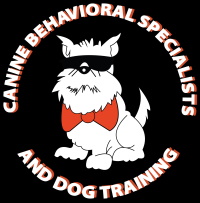How to choose a dog trainer for your puppy or rescue can be tricky. There are lots of philosophies out there and you may not even know what methods are being used to know what you agree with or not. Here are the tips I suggest for how to choose a dog trainer to best fit your needs.
How to Choose a Dog Trainer
Start Right
Puppy training typically involves general socialization skills and basic commands and is best for fully immunized puppies aged 12-22 weeks. “Old dogs” can be taught new tricks, despite the adage that states otherwise. In fact, most dog owners call me once behavior has become problematic, regardless of the dog’s age.
Preventative training is always better than corrective behavior, but sometimes we do the same effective measures with one dog and they are ineffective with another. The time is right for training sooner rather than later.
Ask Questions about Methods
Because methods and philosophies are so varied, don’t be afraid to get clarity on the things you need. Look for a trainer that uses humane and positivity focused behavior correction.
Even if they say, “reward based”, you may assume you mean the same thing as they do, and maybe not. Ask them what that means and use the problem you are having as an example. If there is something problematic in what they say, simply state that you are interviewing a few different dog trainers and would like to get back to them.
Training techniques that involve bizarre tactics to provoke a dog, or that cause physical or emotional trauma to the dog, should not be employed, and likely should even be reported. A dog trainer who uses distraction, ignores unwanted behaviors, and makes assertive corrections. Never should a dog be hit, yelled at or intentionally scared, but they can be redirected, blocked from a behavior (especially if a danger concern), or given a sound or physical cue.
Ask Questions about Training and Certifications
Ask the trainer about any certifications they possess and about the methods they use to train the dogs. There are certifications that can be purchased, so look for credential based ones such as those from International Association of Canine Professionals (IACP). (Others include IAABC: International Association of Animal Behavior Consultants, and CPDT: Certification Council for Pet Dog Trainers.)
Trust Your Gut
Bottom line, trust your gut. If you choose a trainer and after working with them, you change your mind, you are entitled to find someone else.
A reputable dog trainer won’t pressure you or make you feel guilty for you or your pet’s behavior, but rather will suggest ways to handle your emotions/energy and/or behavior differently for a better outcome. How to choose a dog trainer then comes down to how you feel about them, their methods, and their certifications.
